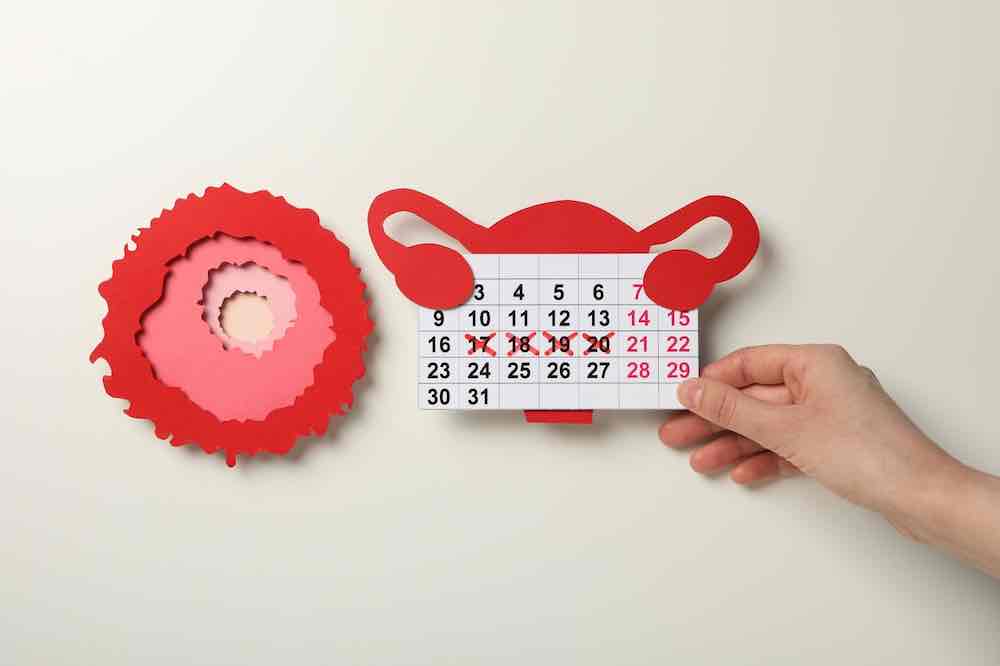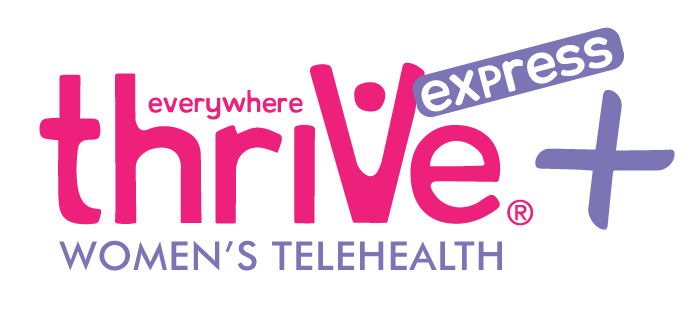We don’t often talk about the really cool stuff our bodies do — especially when it comes to our menstrual cycles. We usually focus on menstruation because, let’s be real. It’s hard to ignore when your period decides to crash your plans every month. But there’s another star of the show that doesn’t get nearly enough love: ovulation.
Ovulation is like the main event of our menstrual cycle, and it’s seriously amazing. It’s the process where one of your ovaries releases an egg.1 It’s basically the reason why the whole cycle even exists. The days leading up to ovulation are when your body is at its peak fertility (or when a woman is most likely to become pregnant). That’s super important to understand, so that you can understand what’s going on inside you.
Being the expert on your own body is a great step towards confidence.
So, let’s dive into what ovulation is, how to recognize it, and what it feels like. Because there’s something called “ovulation pain” or “mittelschmerz” that a lot of us experience. Plus, I’ll break down how to tell if the pain you’re feeling is from ovulation… or something else you might want to get checked out.

The Main Event: Ovulation
What actually is ovulation? Every month, one of your ovaries releases an egg. This egg is what can potentially meet up with sperm and kickstart a pregnancy. The whole menstrual cycle is basically leading up to this moment. Your uterus’s lining thickens up, getting ready to support a potential pregnancy, and your hormones rise, prepping for the big release.
Ovulation usually happens about halfway through your cycle. If your cycle is 28 days long, you’ll probably ovulate around day 14. But everyone’s different, so it might be a little earlier or later. The egg only hangs around for 12-24 hours, but your body can be fertile for a few days before and after. Sperm can survive inside you for a while (we’re talking up to five days!). If you decide to postpone sex until you’re in a long-term, committed, monogamous relationship (like marriage), you won’t have to worry about pregnancy. When there’s no sperm to fertilize the released egg, no pregnancy can begin.1
Ovulation Pain: What’s That About?
Now, let’s get into the fun part — ovulation pain, or as the boujee (and medical professionals) call it, “mittelschmerz” (which literally means “middle pain” in German, because it happens in the middle of your cycle). Not everyone experiences it.2 But if you do, it’s like a little signal from your body saying, “Hey, I’m ovulating!”
So, what does it feel like? The pain that some women feel during ovulation is usually a sharp or crampy feeling on one side of your lower abdomen. Whether you feel it on the right or left side depends on which ovary is releasing an egg that month. The discomfort can last anywhere from a few minutes to a few hours, and can range from mildly uncomfortable to pretty intense. Some people also notice a bit of spotting or vaginal discharge around this time.
Why does it happen? Well, doctors have some theories. Just before the egg is released from the follicle, the surface of the ovary stretches, and could cause pain. Also, when the egg is released, it breaks out of the ovary. That can cause a bit of irritation, or even some vaginal bleeding. Sometimes the fluid released along with the egg can irritate the surrounding area, causing a bit of cramping.2 The pain can usually be managed with over-the-counter medications like ibuprofen.
Is It Ovulation Pain or Something Else?
Okay, so here’s where things can get tricky. Mittelschmerz is usually no biggie. It’s just part of your body doing its thing. But, it’s important to know when what you’re feeling might be something else that needs attention. You shouldn’t have to live with chronic pain. Read up on these so you know if you should see your doctor:
– Early Pregnancy Cramping: If you’ve been sexually active, cramping can actually be one of the first signs of pregnancy. It might come with other early pregnancy symptoms like nausea or breast tenderness.3 If you’re in doubt, it’s a good idea to take a pregnancy test. You’re welcome to head over to ThriVe for a no-cost, lab-quality test so you can know for sure.
– Ectopic Pregnancy: This is when a fertilized egg implants outside the uterus, usually in one of your fallopian tubes. The pain can be sharp and intense, and could be mistaken for mittelschmerz. But pain from an ectopic pregnancy usually gets worse over time and can be accompanied by more bleeding.4 This is a medical emergency, so if you’re feeling something more severe than your usual mittelschmerz, get checked out ASAP. You can get a solid answer by getting an ultrasound at ThriVe. The ultrasound will show what’s going on, and if you need medical attention. This is also a no-cost service.
– Pelvic Inflammatory Disease (PID): This is an infection of your reproductive organs, often caused by sexually transmitted infections (STIs). The pain from PID can feel similar to pain from ovulation but is usually more constant and can come with fever, unusual discharge, or pain during sex.4 If you think this might be the case, ThriVe offers no-cost STI screenings. We can help you figure out what’s going on.
– Ovarian Cysts: These are fluid-filled sacs that can form on your ovaries. Most of the time, they’re harmless and go away on their own, but they can cause pain, especially if they rupture. The pain might feel like mittelschmerz, but can be more severe and last longer.6
– UTI: Urinary tract infections can cause lower abdominal pain, which might be confused with ovulation discomfort. But UTIs usually come with other symptoms like a burning sensation when you pee, needing to pee all the time, or cloudy urine.6 If you’re experiencing these symptoms, it’s time to see a doctor.

Celebrate Your Body’s Cycle
I know it might sound a little different, but knowing and celebrating your body’s natural cycles is empowering. Ovulation is the main event! Recognizing the signs can help you feel more in tune with yourself. You deserve confidence in your health!
If you ever feel something that’s out of the ordinary, don’t ignore it. It’s always better to get things checked out, especially if you’re unsure whether it’s just regular ovulation pain or something else. We’re here at ThriVe to support you with no-cost pregnancy tests, STI screenings, and more. We’ve got your back, no judgment, no pressure, just information and support.
So, here’s to celebrating ovulation — the main event of our menstrual cycles — and to understanding the amazing ways our bodies work. Keep listening to what your body’s telling you, and don’t be afraid to reach out if you need help figuring it all out.
Sources:
2https://www.mayoclinic.org/diseases-conditions/mittelschmerz/symptoms-causes/syc-20375122
4https://www.mayoclinic.org/diseases-conditions/ectopic-pregnancy/symptoms-causes/syc-20372088
6https://www.mayoclinic.org/diseases-conditions/ovarian-cysts/symptoms-causes/syc-20353405
7https://www.mayoclinic.org/diseases-conditions/urinary-tract-infection/symptoms-causes/syc-20353447






